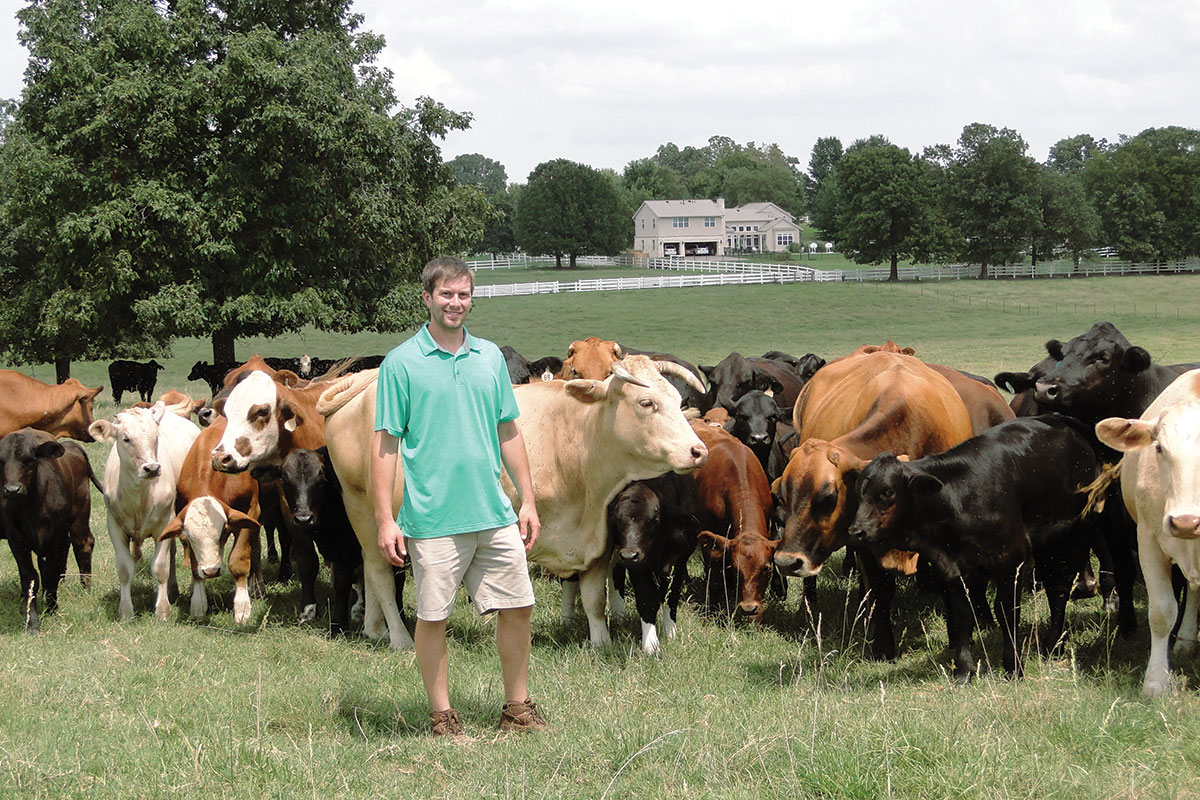 “Way out. Bring ‘em here. Come around.”
“Way out. Bring ‘em here. Come around.”
These commands rang out over the farmland of Linda Sanchez. She was directing her Border Collie, Kipper, to bring in the goats. Linda has trained the dog herself. He awaits her every command. Linda said, “He saves me millions of steps.”
Linda adds that the dogs aren’t specifically for the protection of her other animals. She said, “They’re for me – they’re my guardians. They let me know when anyone is coming down the road.”
Dogs and goats aren’t all the critters on Linda’s farm. All told, she carefully maintains two donkeys, 28 hens, two roosters, four ducks, two dogs, a steer named Hamburger and nine goats on 56 acres near Norfork Lake, just north of Mountain Home, Ark. About half the farm is fenced, with the remainder in woods. The land is so close to the lake shore that parts of her chicken pen and original barn were flooded in last spring’s rains.
Linda doesn’t have a large operation, just a little of this and a little of that, much like many of the farms in the Ozarks. She sells eggs and grows all her animals organically, or as Linda would say, “as close to nature as possible.”
She and her husband, Luis, made a decision in 2006 that brought her from Detroit, Mich., to the Ozarks. Linda said, “I came down to start the farm and my husband is still up there working. Both of us were employed at Ford and I took the buyout, and he is staying until retirement.”
It was a difficult decision to lose half their regular income and to live hundreds of miles a part, but after talking it over, Luis said, “I’ll tell you what – you take the buyout, go down and get it started and I’ll keep working.”
That sounded like a plan to Linda, so down she came. Linda said, “(After I moved here) I stayed in the barn for about two and a half years, until we got our house built.”
Luis is able to join Linda several times a year and helps with major projects, like reinforcing and enlarging the old barn, installing new fencing and clearing ground. His retirement can’t come fast enough for either one of them.
Farming comes naturally to Linda. It’s in her roots. She said, “My grandfather was a pioneer in the farming industry in Ohio. He was a part of the horticultural society and the farming community there. When I bought this place I realized how much he worked. Mine is just a little hobby farm. His was his life. He was very successful in what he did, and was accomplished in that era. I’m thankful that I have him in my background.”
Of course living on a farm has its stresses. During the heat of August, Linda’s llama exhibited signs of heat stress. She called several neighbors and they worked with her, moving the llama to the shade. But their efforts were in vain and she lost the llama. However, Linda emphasizes that she couldn’t make it without the support of her neighbors. Because she works the farm basically alone, her daily life’s struggles would be much more difficult without friends to help. She said, “My friends come when I need them. I’ve got friends from every background. It’s amazing, because what one doesn’t know, the other knows – collectively, we make a team – it’s a community effort. Their knowledge has really helped me.”
Linda has dreams for the farm. In the future, she’d like to sell goat milk and make goat cheese and soap. When Luis retires and joins his wife full time, he’d like to grow grapes and make wine. The Sanchezes also currently have an orchard with peach, apple and apricot trees. But they’re not growing well where they are, so Linda and Luis plan to move them to a better location.
Linda remembers that her grandfather’s farm was a place of refuge. Hopefully, her little Ozarks farm can become a refuge for children, too. Linda said, “Every child ought to be able to come to a farm.”







